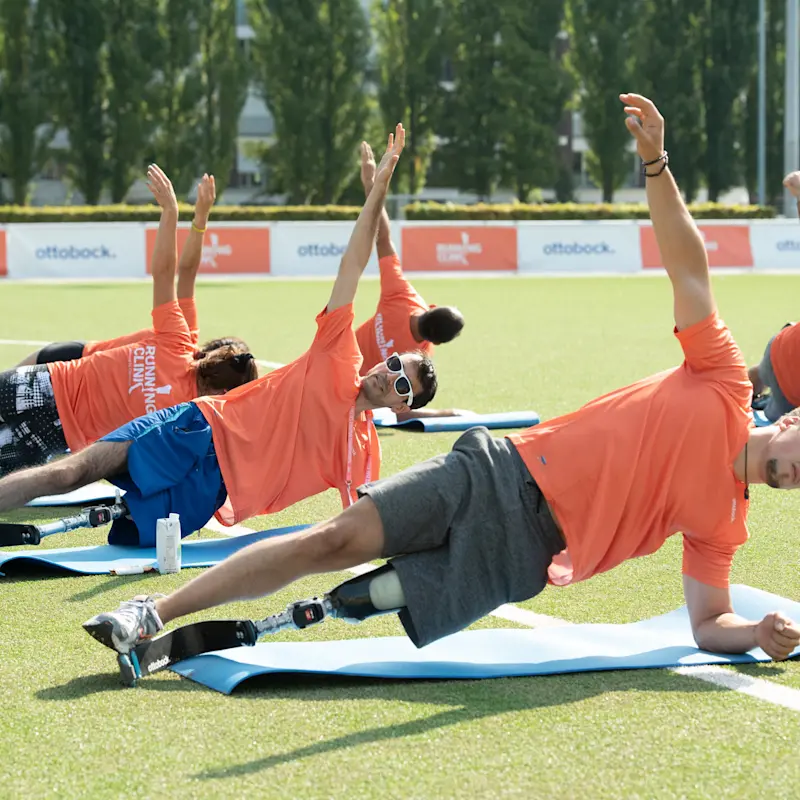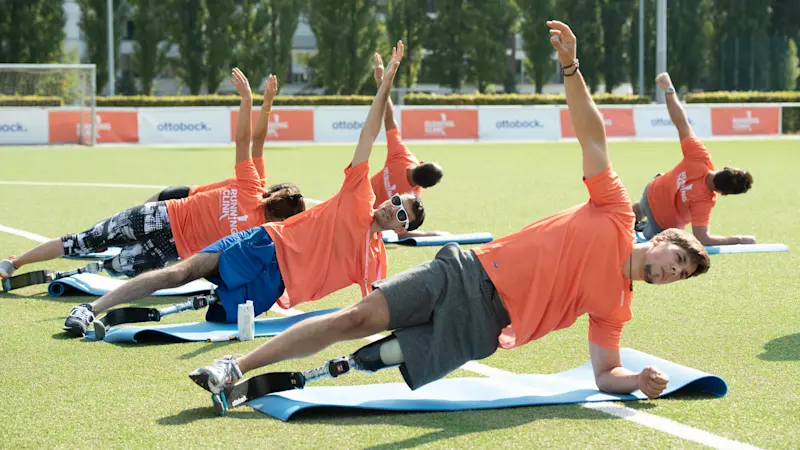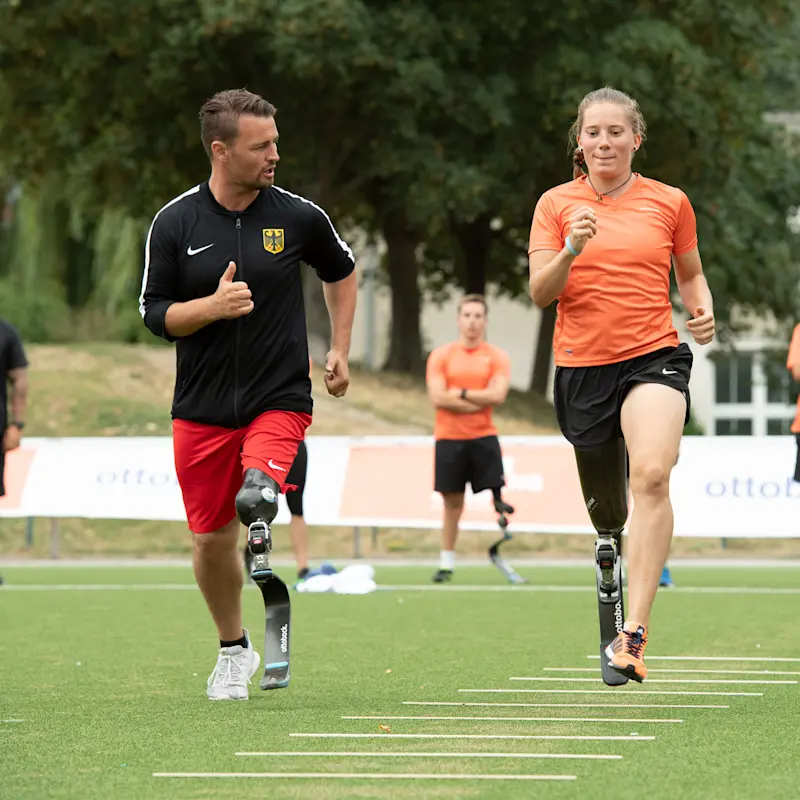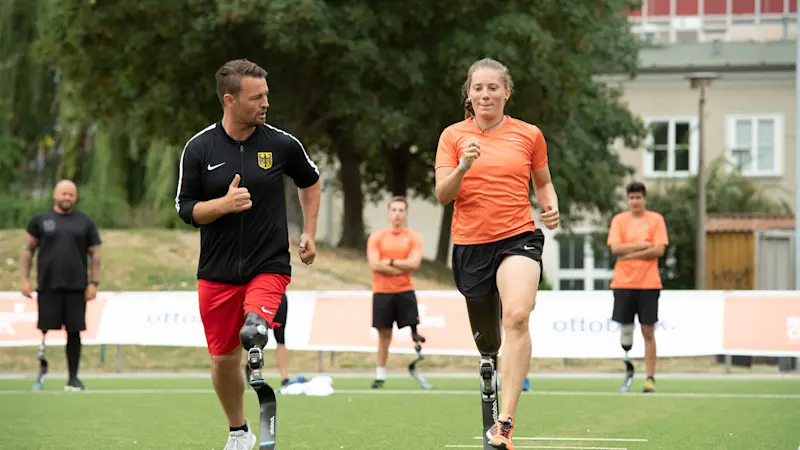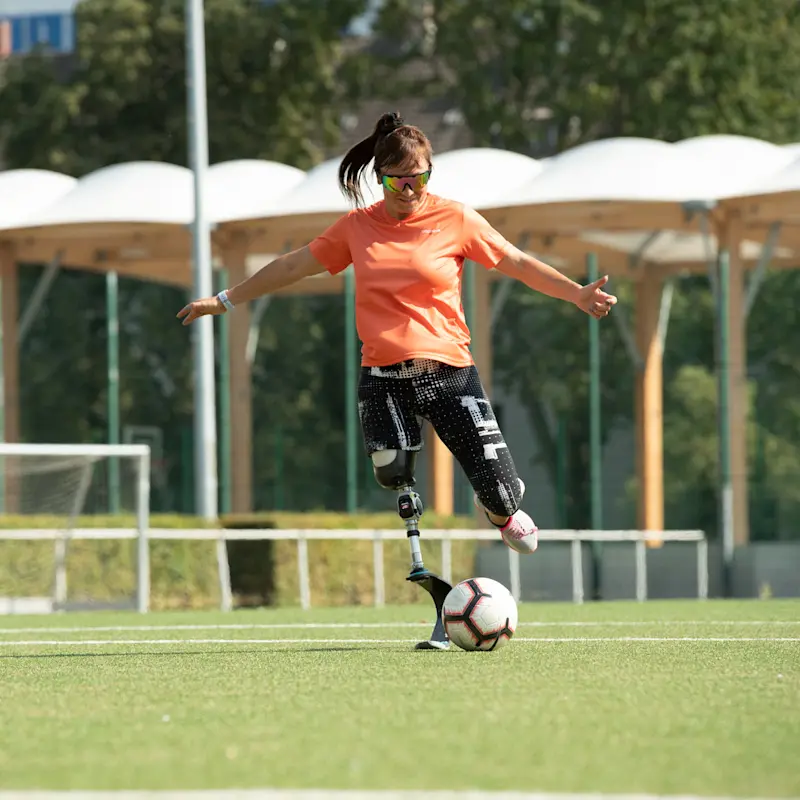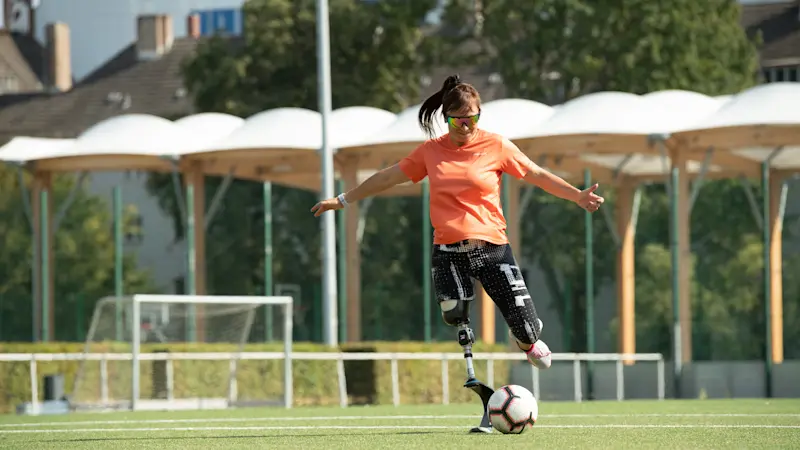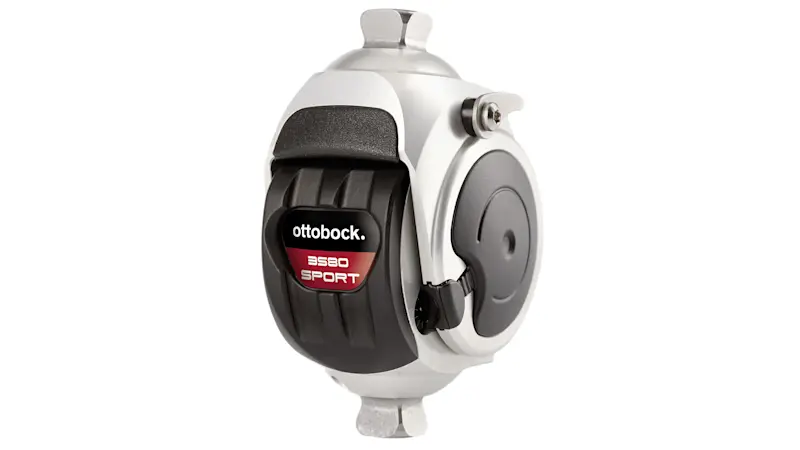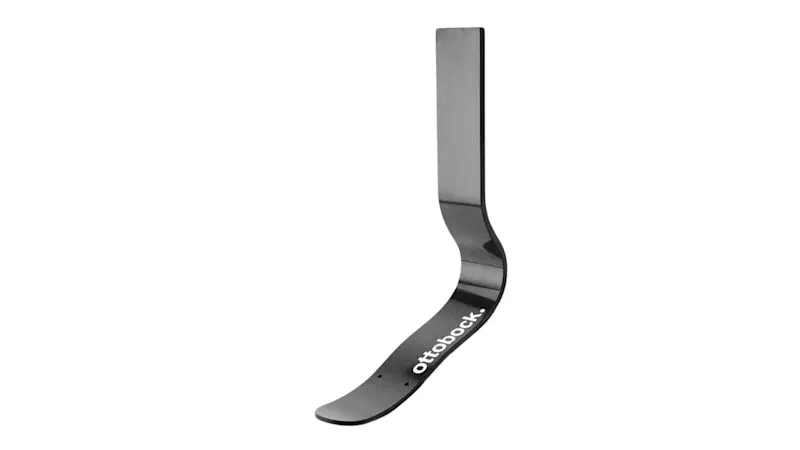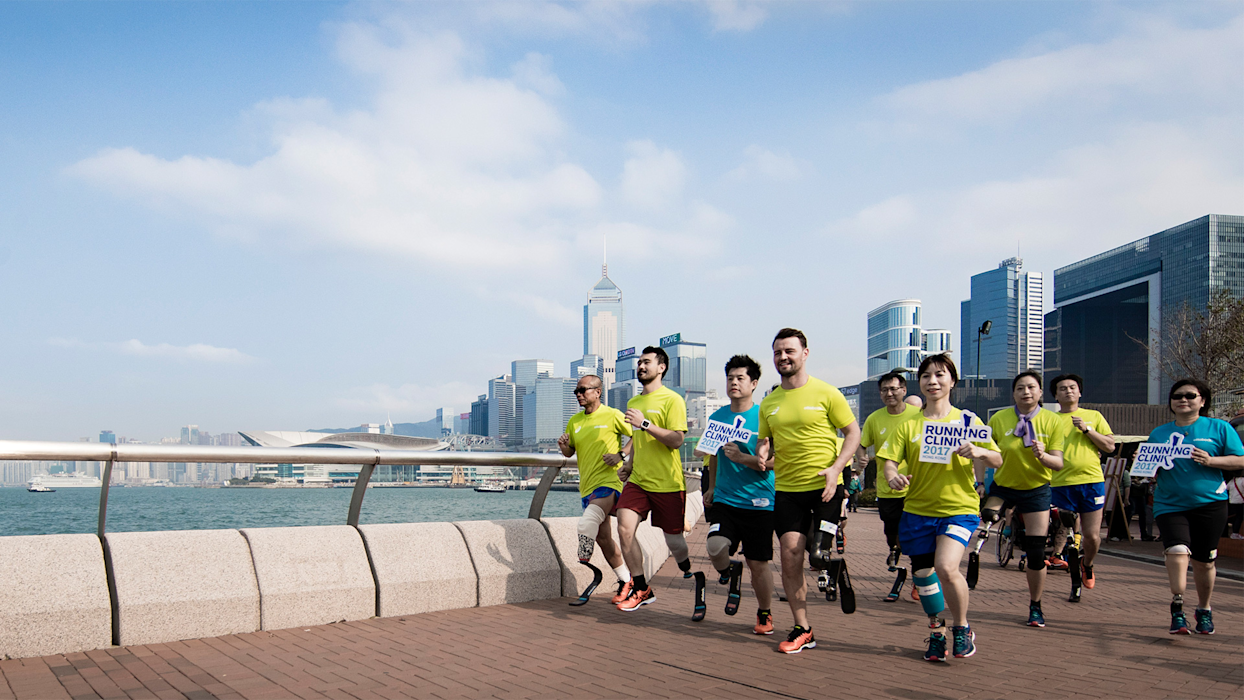
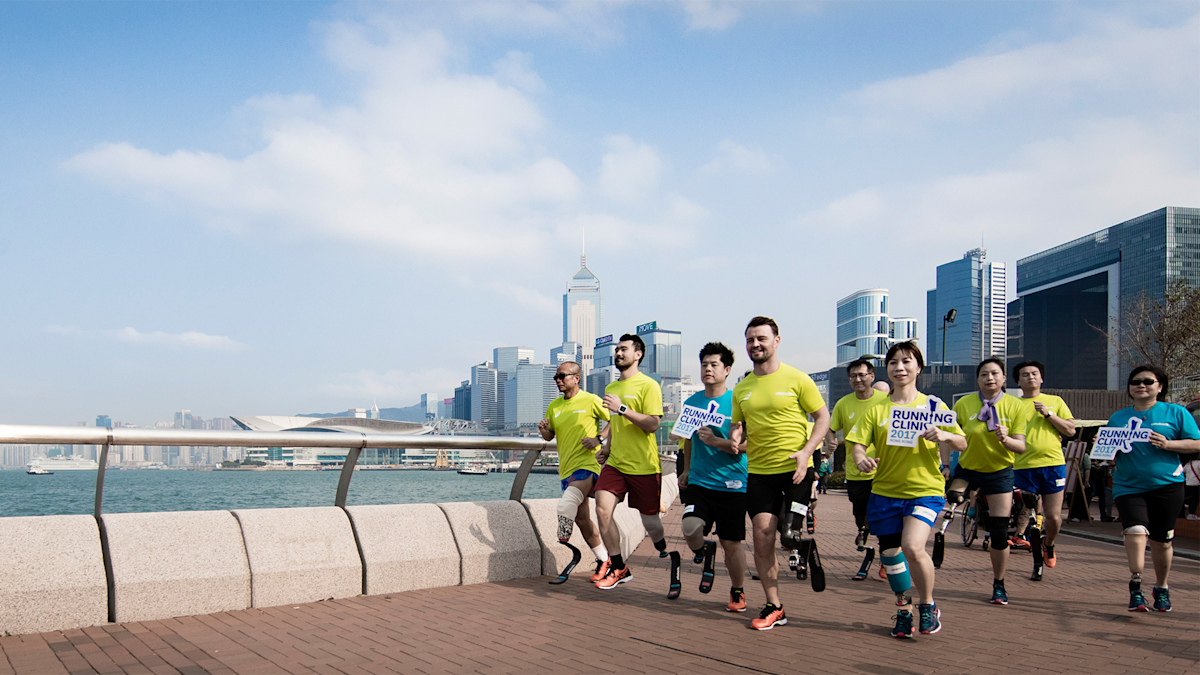
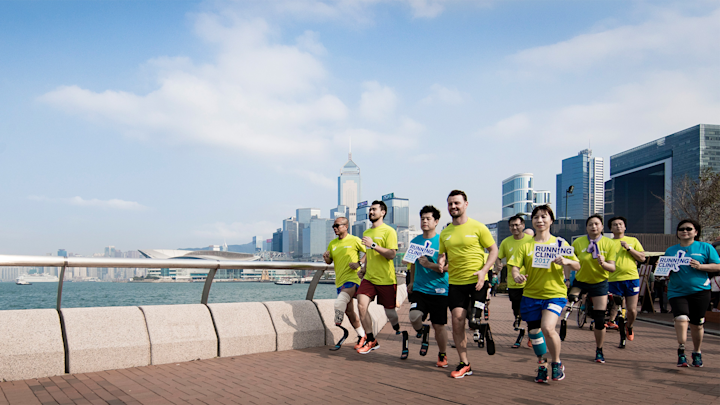
Running Clinics.
Taking those first steps with a sports prosthesis, aiming to run a new personal best or simply racing with the kids again – everyone has their own reasons for participating in an Ottobock Running Clinic.
Taking those first steps with a sports prosthesis, aiming to run a new personal best or simply racing with the kids again – everyone has their own reasons for participating in an Ottobock Running Clinic.
Running with Ottobock.
Exercising and engaging in a sport benefits our bodies and our minds. Exercising your cardiovascular system, maintaining personal mobility, unwinding, feeling your body move and overcoming challenges – these are all good reasons for people with and without disabilities to participate in sports.
We at Ottobock want to give people with limited mobility the opportunity to experience our passion for sports. That’s why we initiated the Running Clinics in cooperation with Heinrich Popow, who won gold at the Paralympic Games in London 2012 and Rio 2016. At the clinics, amputees ranging from beginners to experienced runners work as a team to achieve their personal goals. They come together for a weekend to train, practise and try out sports prostheses under expert supervision.
A conversation with Heinrich Popow.
Sports are important for the well-being of our society. But do you think sports are even more important for people with amputations?
Of course you can! So you can move freely again. You have to be in good shape to get the most out of your prosthesis. Studies show that a person with a transfemoral amputation has to exert up to seven times more energy than a non-amputee to make the same movements. So if you have a friend with an amputation and you say to him, “Come on, let’s go on an hour-long walk!”, that’s like a seven-hour walk for him.
Sports and fitness determine your quality of life. People with an amputation have to achieve a higher level of fitness than people without disabilities. But we shouldn’t forget the positive effect that training has on our mental well-being as well.
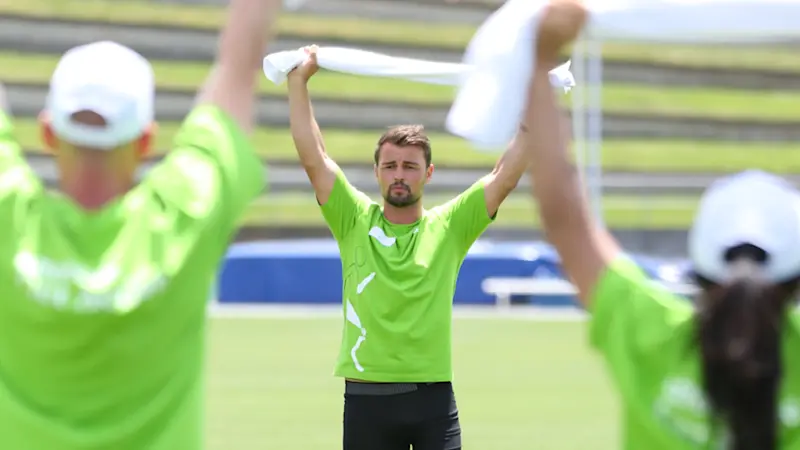
Quality of life and independence.
Heinrich Popow has been inspiring transfemoral amputees from around the world since 2013. In the Running Clinic sports camps, he shows them how to run with a sports prosthesis. He is convinced that people with disabilities should engage in sport regularly – not despite their disabilities, but because of them.
Heinrich Popow, Trainer Running ClinicsSports have given me an incredible amount to be grateful for. I see it as my duty to share my experience with as many people as possible. It’s not about turning amputees into top-flight athletes, but about showing them how much sports can improve their quality of life. Not about engaging in sports despite the prosthesis – but because of it.
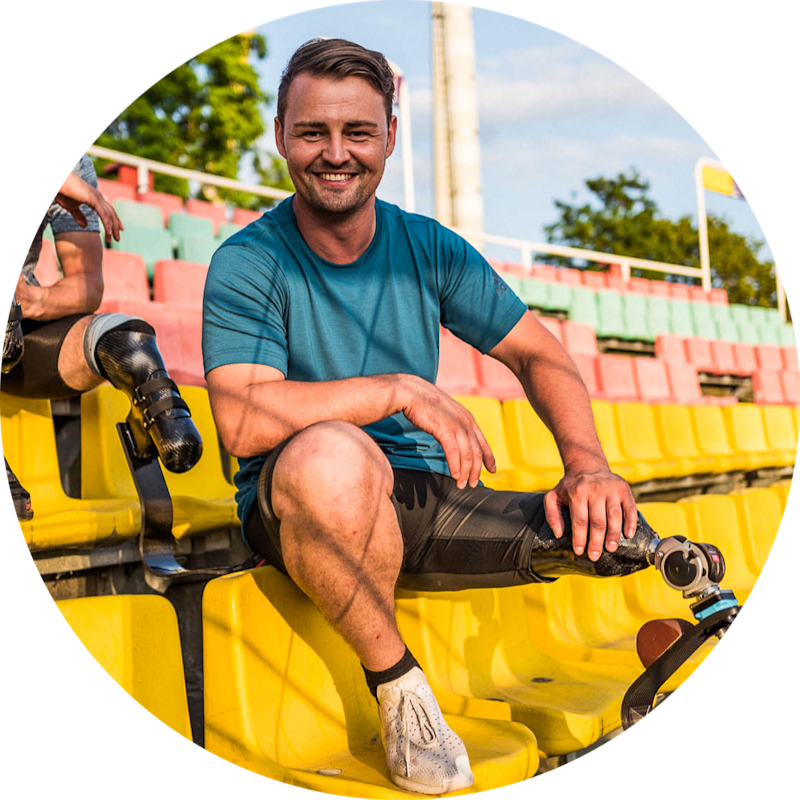
Athletic and active in everyday life.
Sport that moves you.
But the Running Clinics aren’t just about athletic achievements. First and foremost, they are about people. Heinrich Popow helps the participants gain new confidence in themselves during training. He shows them that they are special and unique and that acceptance starts with themselves.
A conversation with Heinrich Popow.
You work closely with children and young people at the Ottobock Running Clinics. Does their attitude change as well?
Absolutely. In the past, children all over the world typically covered or concealed their prostheses. But when they try out their prosthesis at our Running Clinic, functionality comes before aesthetics.
I once met a girl from Japan whose prosthesis was completely covered by a cosmesis. We were barely able to cut through the cover to get to the technology and make changes. When she participated in the Running Clinic five years later, she had made the futuristic design of her prosthesis her own and was wearing skirts and shorts. I’m absolutely convinced that sports always have and always will be able to change the way people think.
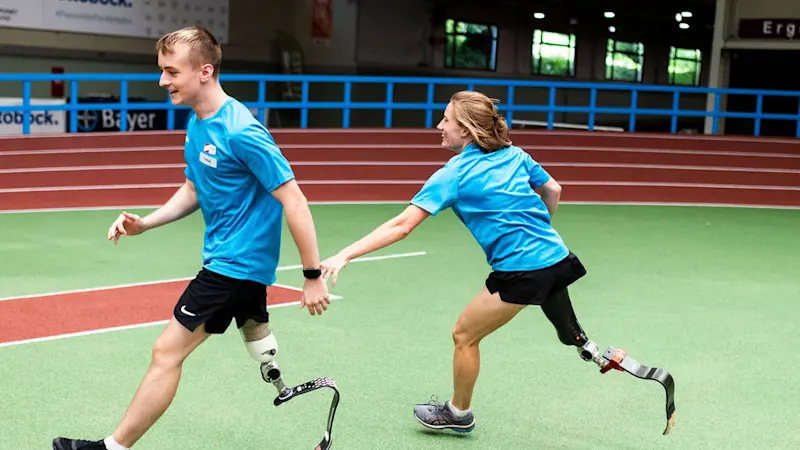
Running Clinic dates 2025.
March: New Delhi, India
May: Guangzhou, China
June: Meggen, Switzerland
July: Vught, Netherlands
August: Duderstadt, Germany
September: Omegahallen, Sweden
October: Tokyo, Japan
November: Montpellier, France
November: Frisco, USA
Additional topics.
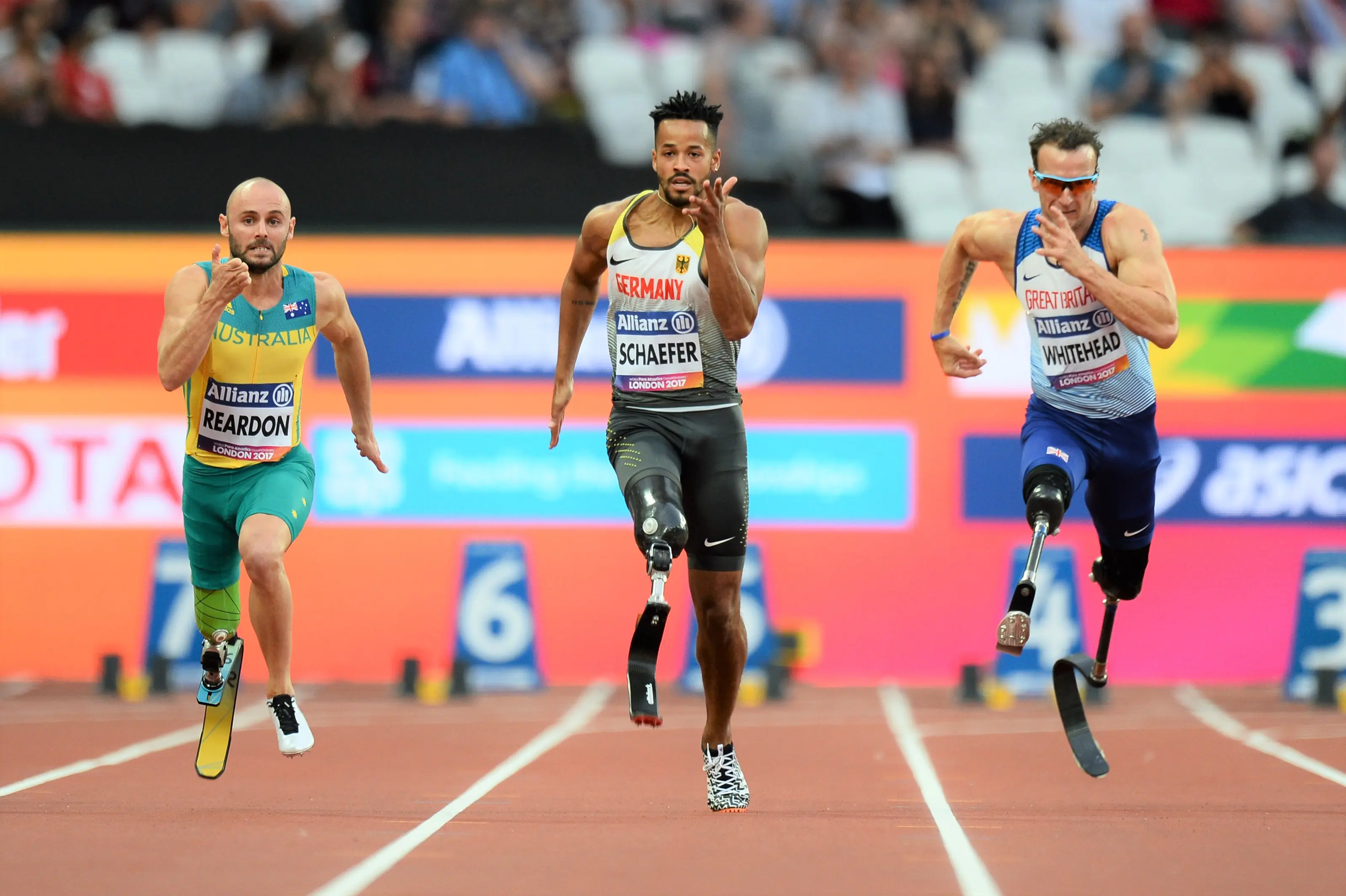
Passion for Paralympics
Our passion for the Paralympics is an inherent part of our DNA. We put our commitment to mobility into practice with our technical service.
Our passion for the Paralympics is an inherent part of our DNA. We put our commitment to mobility into practice with our technical service.
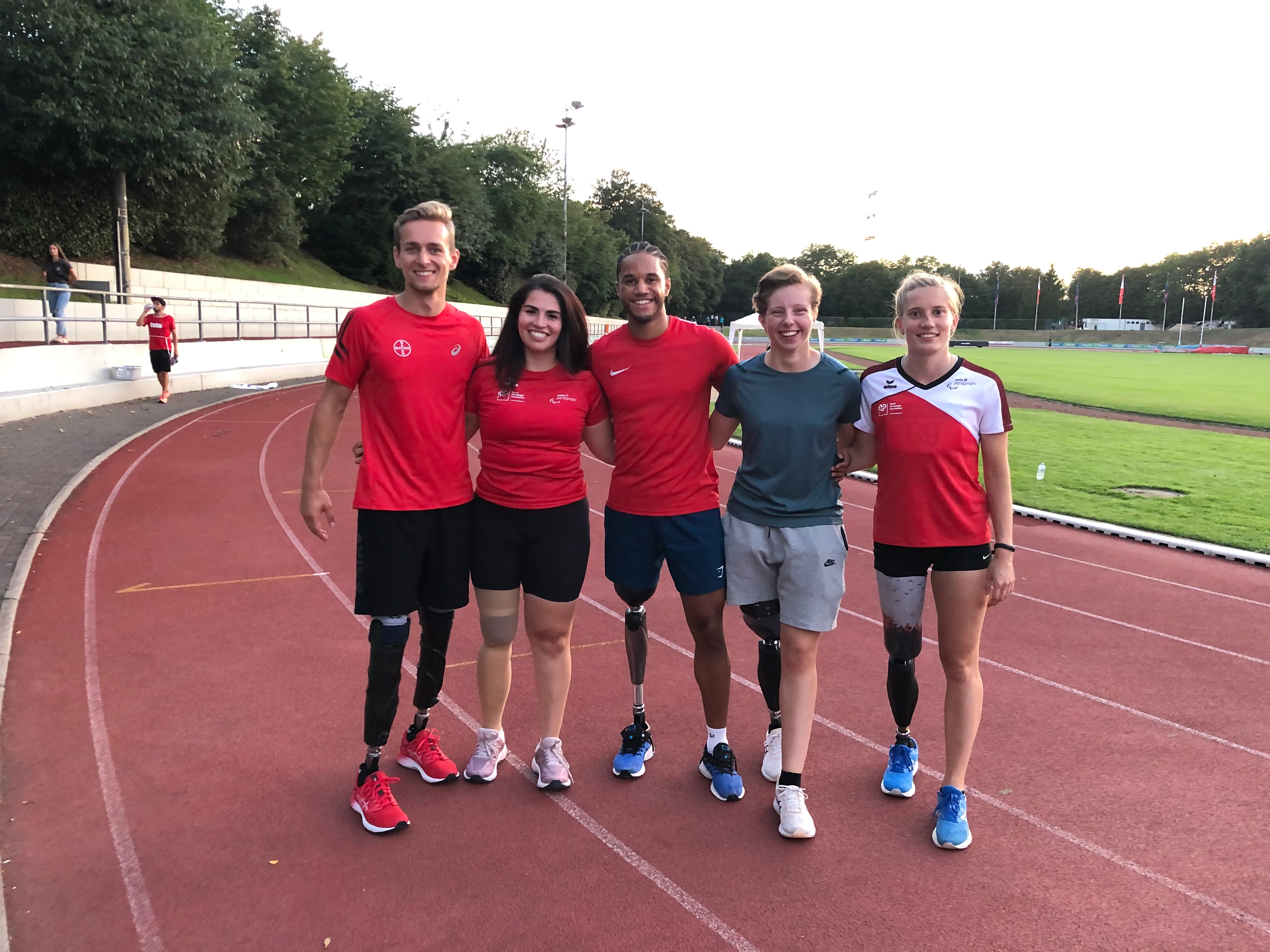
Ottobock Ambassadors
Ottobock supports athletes from all over the world who compete in a wide variety of sports at many different levels. These athletes share our Passion for Paralympics and are dedicated to working as ambassadors to promote sports and an active lifestyle for people with disabilities.
Ottobock supports athletes from all over the world who compete in a wide variety of sports at many different levels. These athletes share our Passion for Paralympics and are dedicated to working as ambassadors to promote sports and an active lifestyle for people with disabilities.

